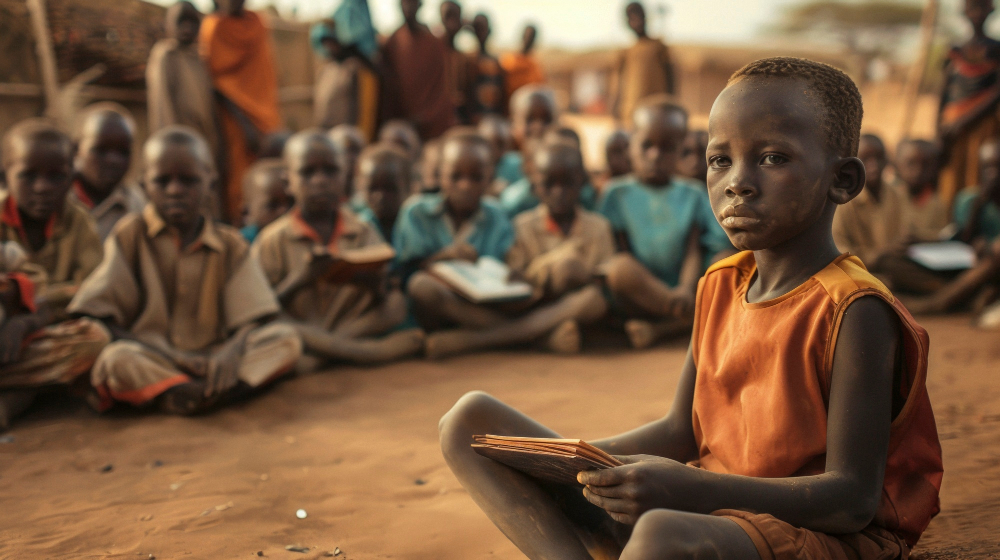
Education is a fundamental right, yet millions of children in Nigeria remain out of school, deprived of opportunities that could shape their future. This issue has persisted for decades, posing a significant threat to national development, economic growth, and social stability. The crisis demands urgent attention, as it directly impacts the country’s progress and the well-being of its young population.
The Alarming Numbers
Nigeria has one of the highest numbers of out-of-school children in the world. Reports indicate that over 20 million children are not enrolled in formal education, a statistic that continues to raise concerns among stakeholders. This figure represents a substantial portion of the global out-of-school population, highlighting the severity of the situation. While efforts have been made to improve enrollment rates, challenges such as poverty, cultural norms, insecurity, and infrastructural deficits continue to hinder progress.
Causes of the Out-of-School Crisis
Several factors contribute to the growing number of out-of-school children in Nigeria. Understanding these causes is crucial in developing effective solutions.
- Poverty and Economic Hardship
Many families struggle with financial instability, making it difficult to prioritize education. Children from low-income households are often forced into labor, street hawking, or begging to support their families. The inability to afford school fees, uniforms, and learning materials further exacerbates the problem. - Cultural and Religious Barriers
In some communities, cultural and religious beliefs discourage formal education, especially for girls. Early marriage, gender discrimination, and traditional apprenticeship systems often take precedence over schooling. These societal norms limit access to education and widen the gender gap in literacy levels. - Insecurity and Conflict
The rise of insurgency, banditry, and communal clashes in various regions has led to the destruction of schools, displacement of families, and increased fear of attacks. Many children in conflict-affected areas are unable to access safe learning environments, leading to a rise in school dropouts. - Weak Educational Infrastructure
A lack of well-equipped schools, overcrowded classrooms, and insufficient teaching staff have discouraged many children from attending school. In rural areas, children often have to walk long distances to the nearest school, making education less accessible. - Poor Implementation of Educational Policies
Despite laws mandating free and compulsory education, enforcement remains weak. Many children still face barriers due to hidden costs, corruption, and inadequate funding. Without proper implementation, these policies fail to make a meaningful impact.
The Consequences of an Uneducated Generation
The increasing number of out-of-school children has far-reaching consequences for individuals and society as a whole. Some of the major impacts include:
- Increased Child Labor and Exploitation
Without access to education, many children are forced into labor, exposing them to harsh conditions, abuse, and exploitation. - Rising Crime and Insecurity
Lack of education limits opportunities, pushing many young people toward criminal activities, terrorism, and other forms of social unrest. - Economic Setbacks
A poorly educated population limits workforce productivity, innovation, and national economic growth. Without skilled workers, industries struggle to expand, and poverty cycles persist. - Health and Social Inequality
Education plays a crucial role in improving health awareness, reducing child mortality, and promoting better hygiene. An uneducated population is more vulnerable to diseases and poor living conditions.
The Path Forward
Addressing the crisis requires a multi-faceted approach that includes government intervention, community participation, and private-sector involvement. Key strategies to tackle the issue include:
- Strengthening Policy Implementation
Enforcing existing laws on free and compulsory education while ensuring transparency and accountability in funding allocation. - Providing Financial Support for Families
Expanding scholarship programs, conditional cash transfers, and free school feeding initiatives to encourage enrollment and retention. - Improving School Infrastructure
Building more schools, recruiting qualified teachers, and providing adequate learning materials, especially in rural and conflict-affected areas. - Community Engagement and Awareness
Working with religious and traditional leaders to promote the importance of education and eliminate harmful cultural practices. - Leveraging Technology and Alternative Learning Methods
Expanding digital education, mobile classrooms, and flexible learning programs to reach children in remote locations.
Conclusion
The crisis of out-of-school children in Nigeria is a national emergency that requires urgent and sustained action. Every child deserves the right to education, and collective efforts are needed to bridge the gap and create a brighter future. Investing in education is not just about securing the future of children; it is about safeguarding the progress and stability of the entire nation.



